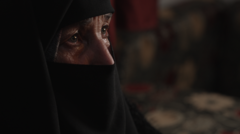The ongoing transformation in Syria, particularly following the recent developments regarding Bashar al-Assad's leadership, has ignited a mixture of hope and grief for many families affected by the regime's brutality. The Khatib family, who lost their son Hamza, a mere 13-years-old when he was tortured to death after an anti-government protest in 2011, epitomizes this dichotomy. The protests which followed Hamza's death catalyzed the larger Syrian revolution, deepening the ongoing civil war.
In Deraa, the epicenter of the protest movement, one would expect the Khatib family to celebrate the potential fall of the regime that devastated their lives. Instead, they are steeped in mourning, having just received confirmation of the death of Hamza's older brother, Omar, who died in custody in 2019. Samira, the boys' mother, expressed her profound anguish, stating, “I hope he will pay the price,” while lamenting the unbearable pain of losing her children to a regime's oppressive actions.
Since the uprising began, Deraa has been a focal point of resistance, seeing the emergence of rebel groups like the Free Syrian Army (FSA). Ahmed al-Awda, a former army officer who defected, emerged as a significant figure in Deraa's fight against Assad's forces, expressing a desire for justice. Despite the jubilation many felt with Assad's potential exit, al-Awda remarked, “I will do my best to bring him to judgement in court,” signaling that the scars of war extend beyond a fight against a singular regime.
As highlights of the regime's oppressive nature unravel, numerous families still bear the weight of loss, represented starkly by Hamza's broken grave, unkempt and damaged from past battles. It serves as a powerful reminder that while many are hopeful, the journey toward peace and true justice remains fraught with challenges.
With the reshaping landscape of Syria comes the concern of unity among opposition forces now that Assad may no longer be their common foe. There are fears that without a collective purpose, the fragile cohesion could crumble, possibly leading to chaos reminiscent of Iraq or Libya, both nations which struggled in the wake of regime change.
Overall, the situation in Deraa, filled with both jubilant cheers for newfound freedoms and somber mourning for lost lives, illustrates the complexity of the narrative unfolding in Syria. The Khatib family's heartbreaking story is a microcosm of a nation caught in the grip of grief, yet hopeful for a better future, reinforcing the importance of accountability and a long-overdue commitment to rebuilding the country without repeating the traumas of the past.



















